Shale Oil 2023- Patent Analysis, Refining Technology Analysis, Product Analysis, Geographical Analysis, Market Analysis
Overview:
About shale oil
For detail read :- https://www.wissenresearch.com/shale-oil-market-report/
Shale oil extraction has a history that dates back to 10th century when Masawaih al-Mardini, an Arabian physician, described a method for extracting oil from bituminous shale. The first patent for shale oil extraction was granted in 1684 to three individuals who discovered a technique to extract pitch, tar, and oil from a specific type of stone. Industrial-scale shale oil extraction began in France in 1838 with the Selligue process, developed by Alexander Selligue. This process was further refined in Scotland a decade later by James Young. During the late 19th century, shale oil plants were established in Australia, Brazil, Canada, and the United States. A significant advancement in extraction came in 1894 with the invention of the Pumpherston retort, which reduced the reliance on coal heat. This innovation marked the separation of oil shale industry from coal industry. However, the discovery of crude oil in Texas during the 1920s and the emergence of oil deposits in the Middle East caused a decline in the shale oil industry. In 1944, the United States resumed shale oil extraction as part of its Synthetic Liquid Fuels Program. These efforts persisted until the 1980s when a sharp decline in oil prices affected the viability of shale oil extraction.
Shale oil extraction has a long history with significant developments. In, 2002 and 2004, a demonstration scale processing plant utilizing the Alberta Taciuk Technology was implemented at Queensland in Australia. This plant produces over 1.5 billion barrels of shale oil. The technology used for in situ processing involves heating the oil shale underground through the injections of hot fluids into the rock formation or by utilizing linear or planar heating sources. In 2006, Shell planned a test using ICP technology (in situ conversion process) to produce 1500 barrels of shale oil over 70 years’ period. Similarly, in Israel, IEI, subsidiary of IDT crop implemented a project implementing ICP technology, horizontal wells and hot gas heating methods. Its aim is to produce 1500 barrels of oil. Technologies such directional drilling and hydraulic fracturing have propelled USA to become the world’s leading producer in 2018.
Notably, recent developments such as real time fluid tracking will greatly improve drilling operations. The integration of robotic technologies and artificial intelligence will enhance drilling precision. Oil field service providers are collaborating with major shale oil producers such as Shell and Chevron to develop autonomous drilling robots equipped with advanced sensors for faster drilling and real time monitoring of well conditions. Additionally, the implementation of drones for methane detection and surveillance is an emerging concept in the industry which can help reduce human error and scope of operation.
Types of shale oil
There are 3 types of shale oil.
1.Carbonate-rich shale: are made from high amounts of carbonate minerals.
2.Siliceous shale: Siliceous shale is rich in the mineral silica, or silicon dioxide. Siliceous shale formed from organisms such as algae, sponges, and microorganism’s is called radiolarians.
3.Cannel shale: is made from the remains of resin, spores, and corky materials from woody plants. It contains minerals such as inertinite and vitrinite. Cannel shale is rich in hydrogen, and burns easily.
Scope
- To identify the key players in shale oil refining.
- To identify the patent filing trends in 10 years
- To identify countries with maximum patent filings.
- To identify and understand the different technologies used in shale oil refining.
- To identify the strategic collaborations and acquisitions within companies.
Refining technology analysis
Our report shows patents filed on technologies for shale oil refining.
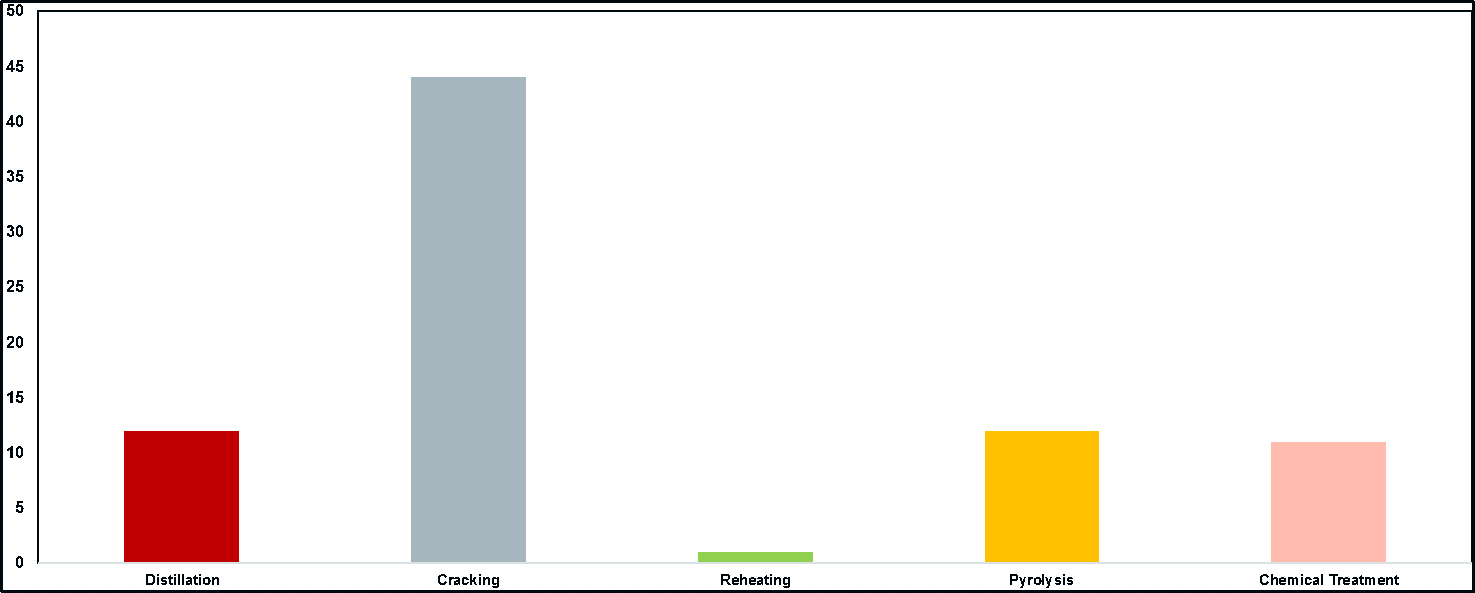
Distillation and filtration methods analysis
Our report shows the number of patents filed on the methods of distillation and filtration.
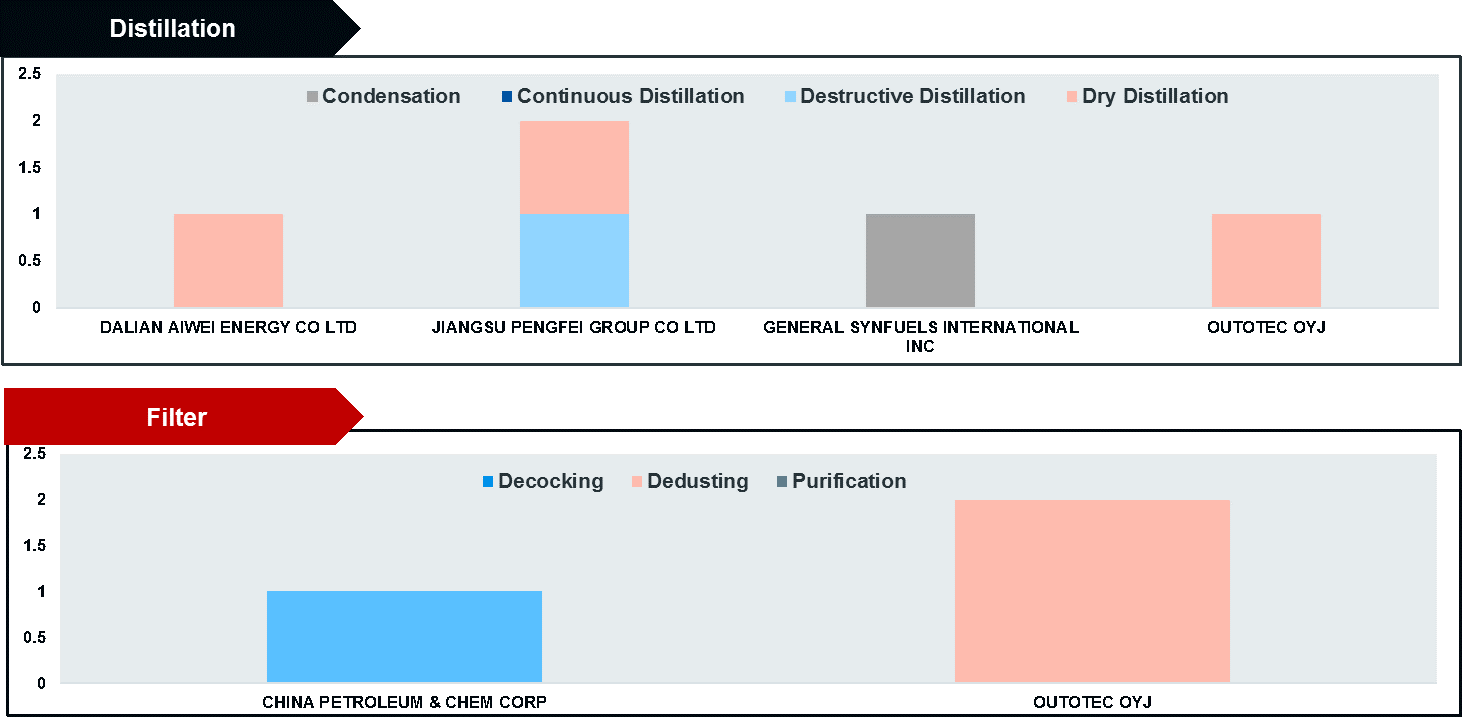
Chemical treatment methods analysis
Our report shows patents filed on different methods of shale oil chemical treatment.
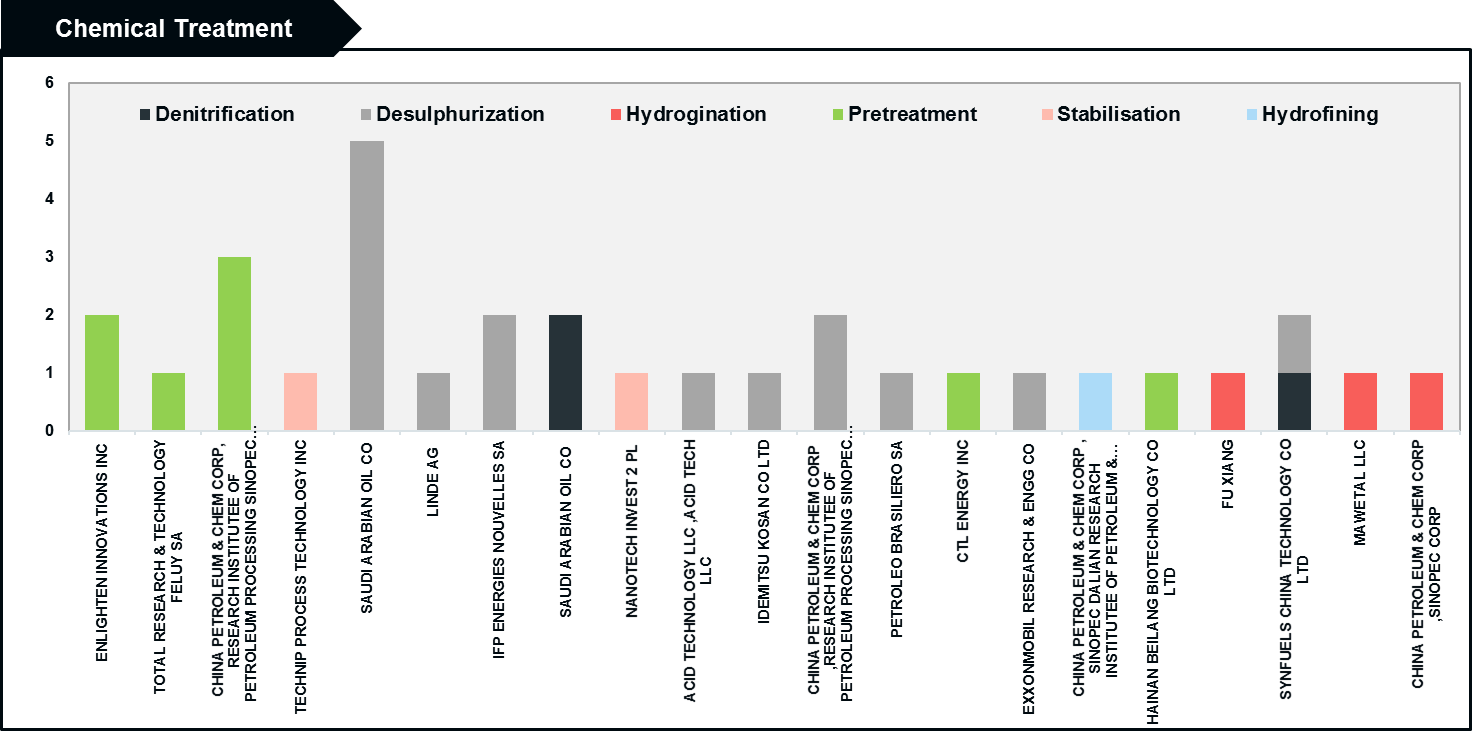
Reheating, pyrolysis, cracking analysis
Our report shows number of patents filed on reheating, pyrolysis and cracking techniques of refining shale oil.
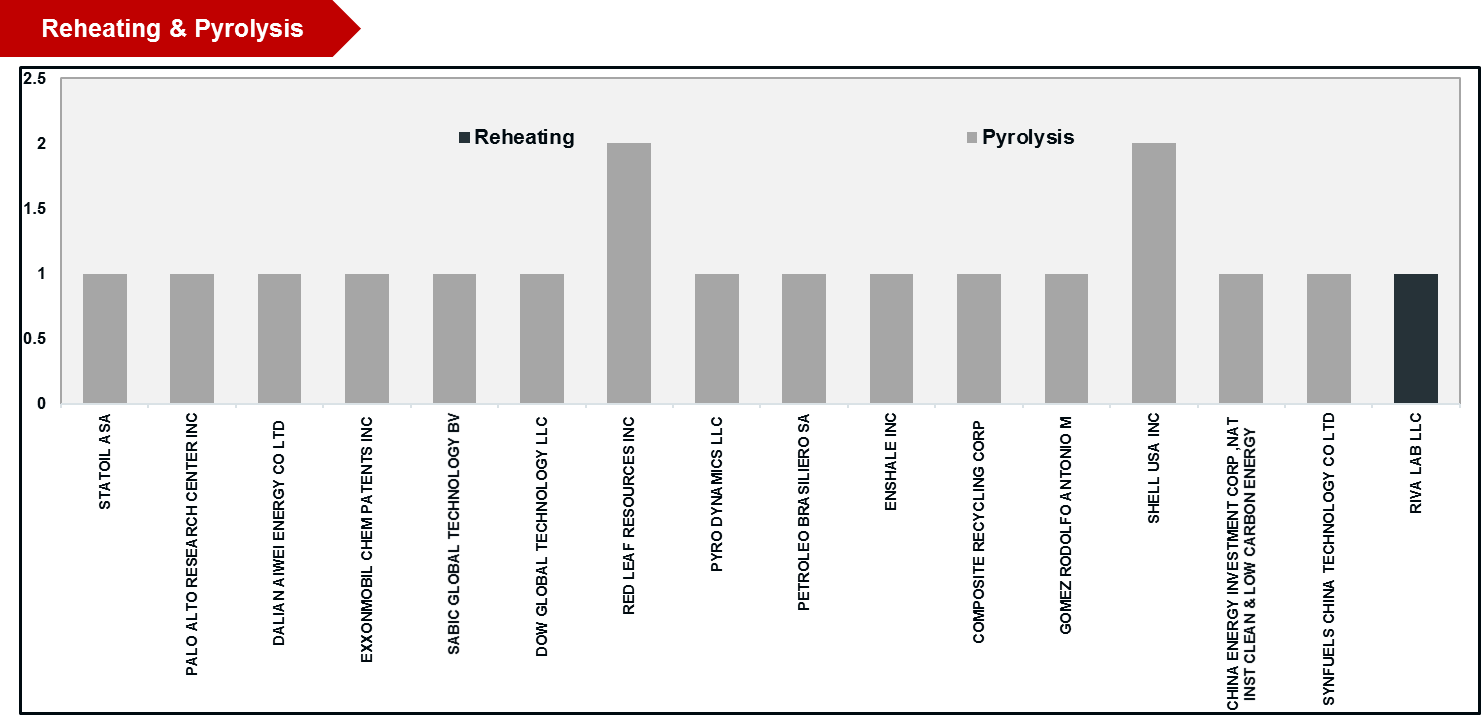
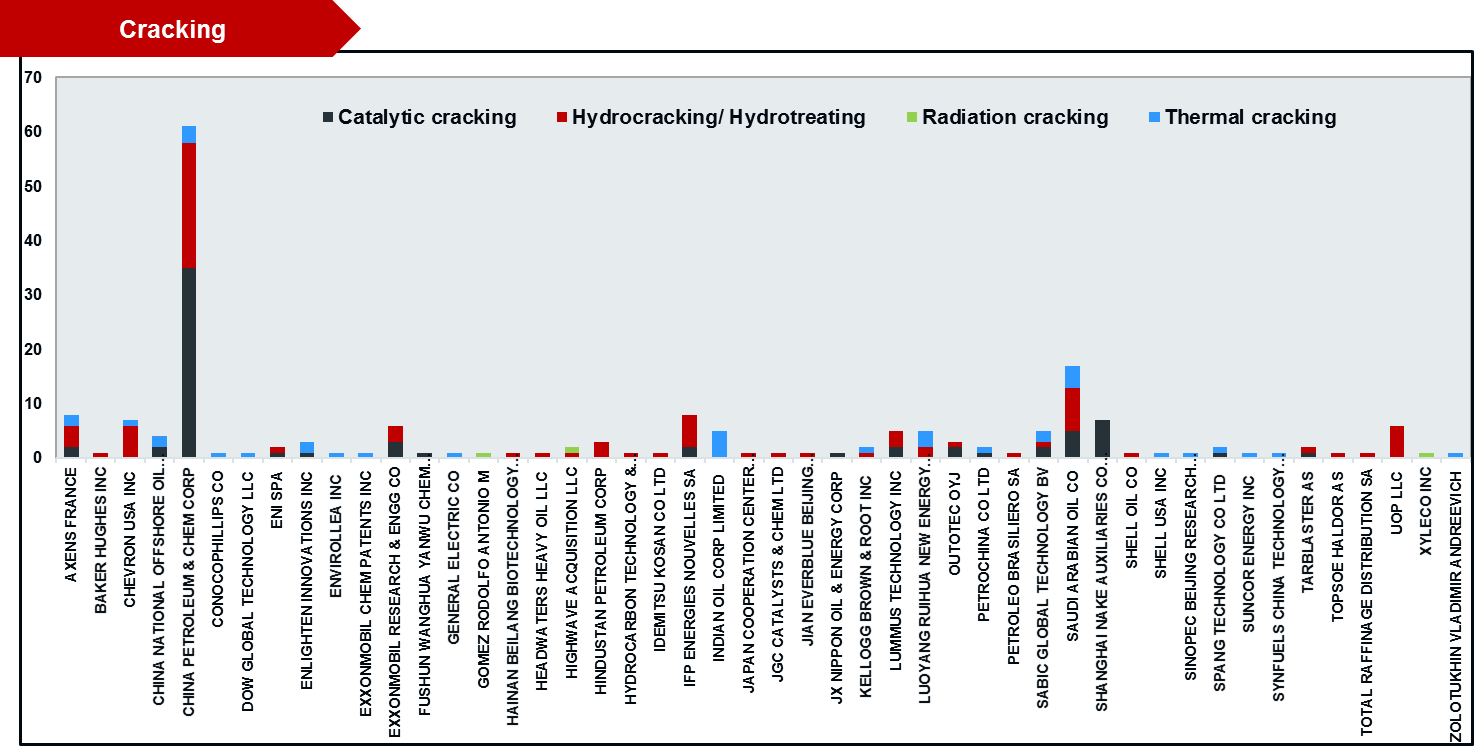
Application area analysis
Our report shows the number of patents filed by companies on different application areas of shale oil.
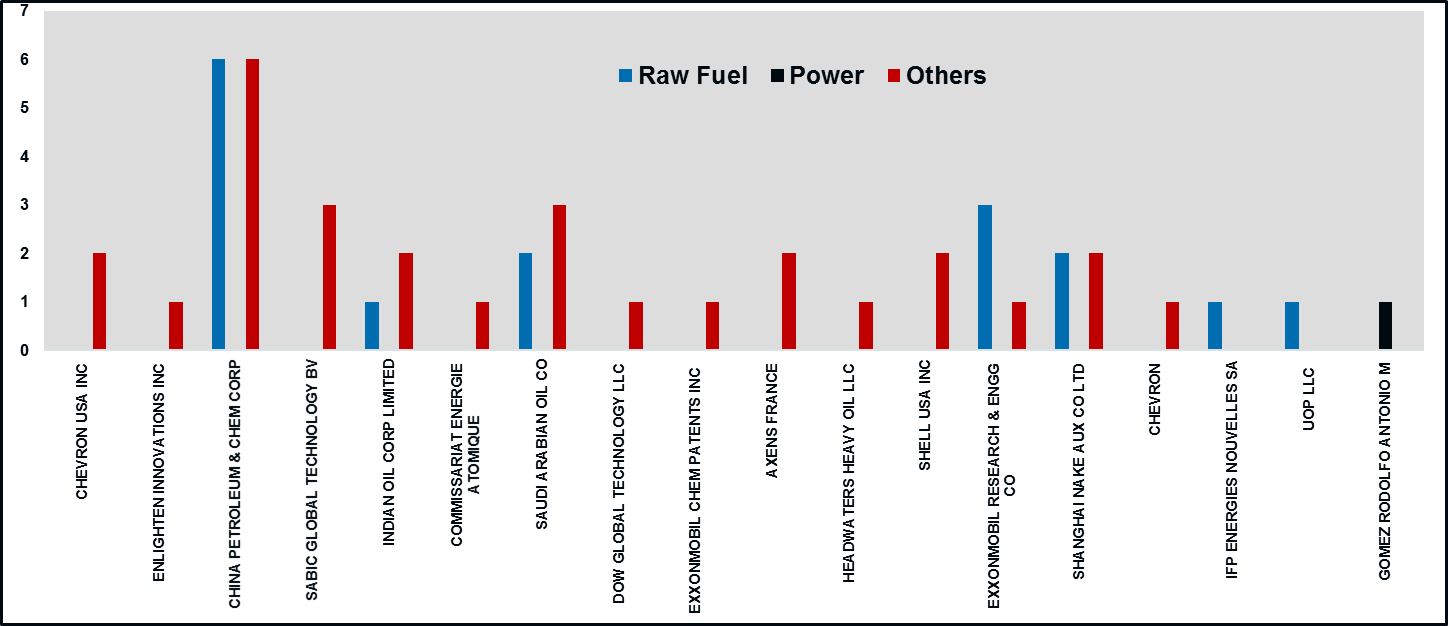
Product analysis
Extraction and refining companies
Our report shows the companies involved in extraction and refining methods
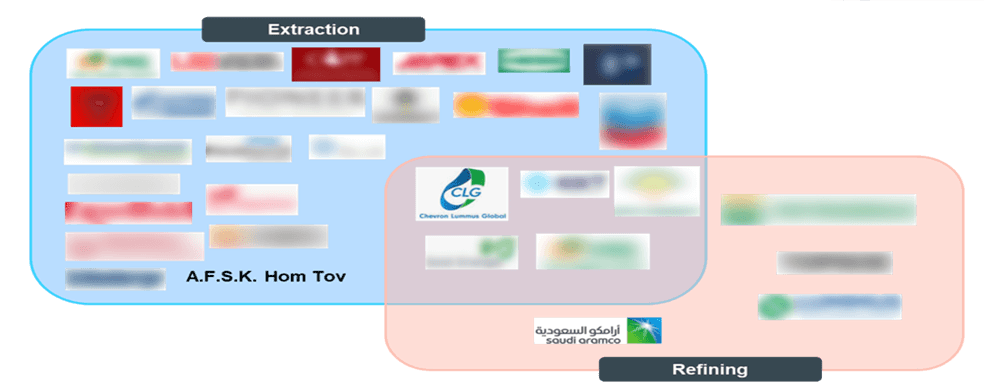
Refining and extraction methods analysis
Our report shows companies carrying out methods of shale oil refining (pyrolysis, hydrocracking) and extraction (Ex situ, In situ).
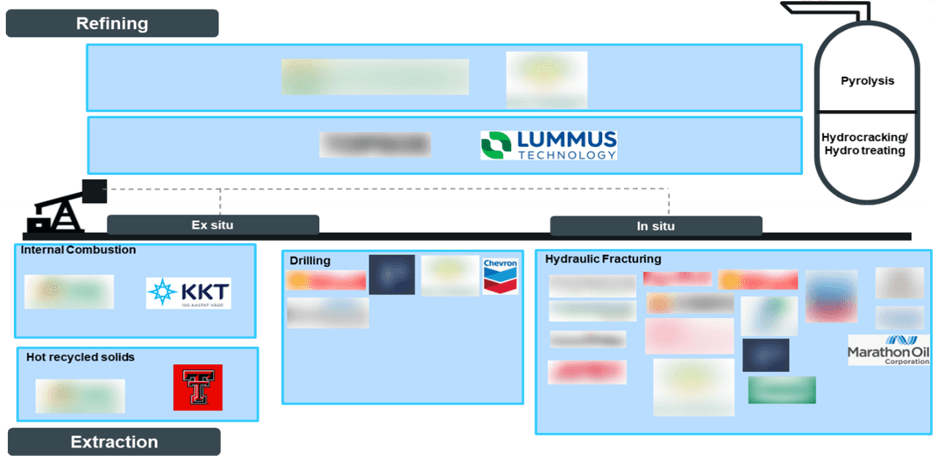
Geographical analysis
Companies with and without Processing methods
Our report shows companies across the globe, with and without shale oil processing facilities.
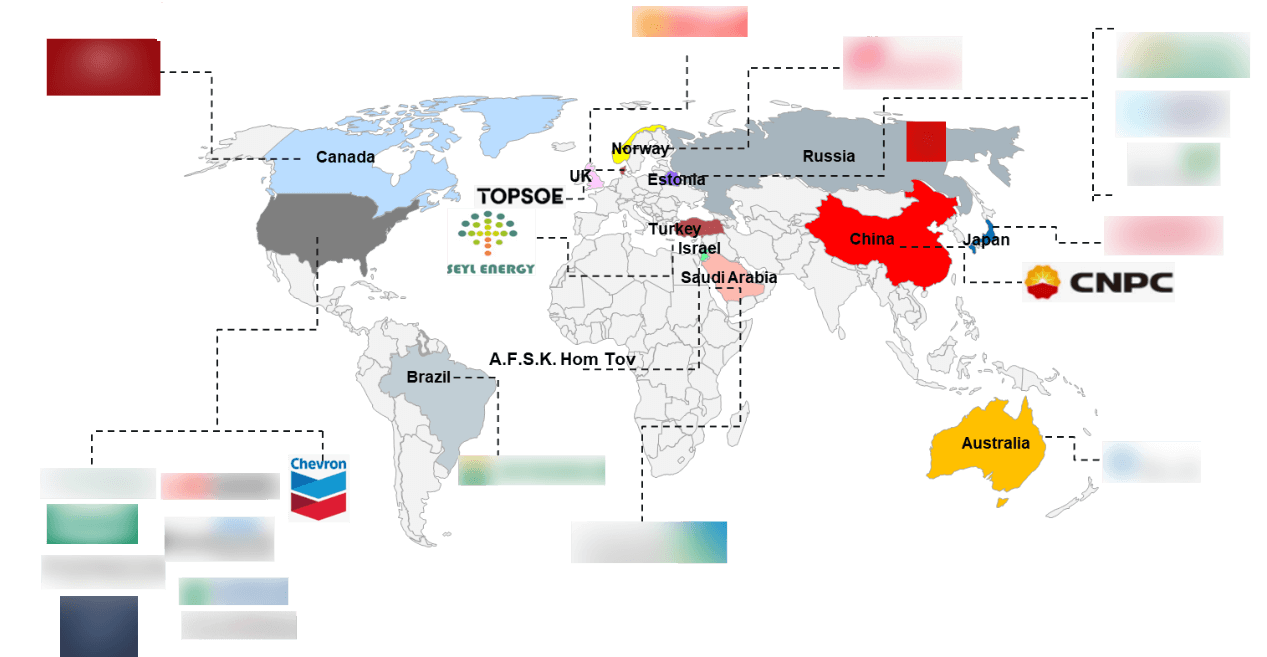
Market analysis
Strategic activities
Our report showcases strategic collaborations and acquisitions between companies in 2021 and 2022.
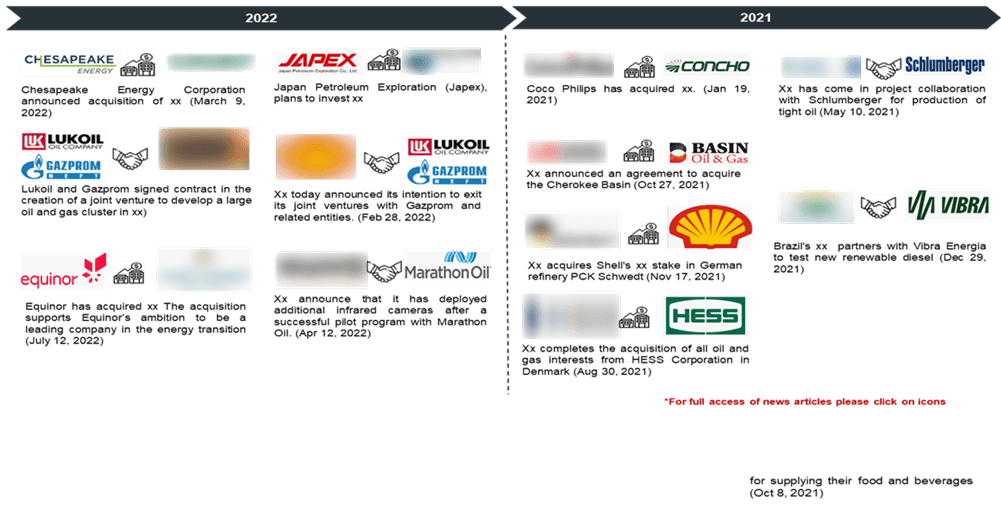
Report insights
- Patent filing on refining technologies, distillation and filtering
- Major companies involved in refining and extraction of shale oil.
- Strategic collaborations and acquisitions.
Report highlights
- Identification of companies performing shale oil refining may help in knowing number of companies presently working in shale oil extraction and refining.
- The current market, future forecasts, and strategic activities may be useful in determining the shale oil market and making future decisions.
Comments
Post a Comment